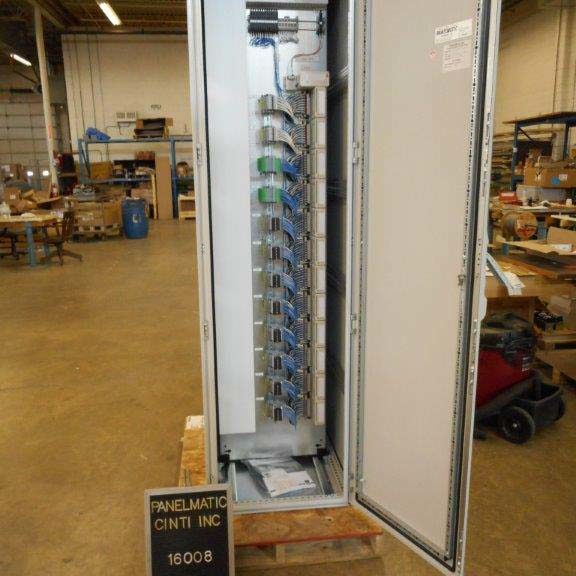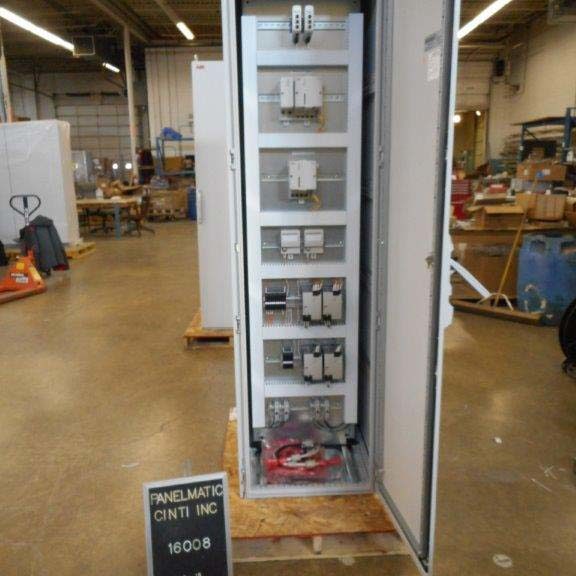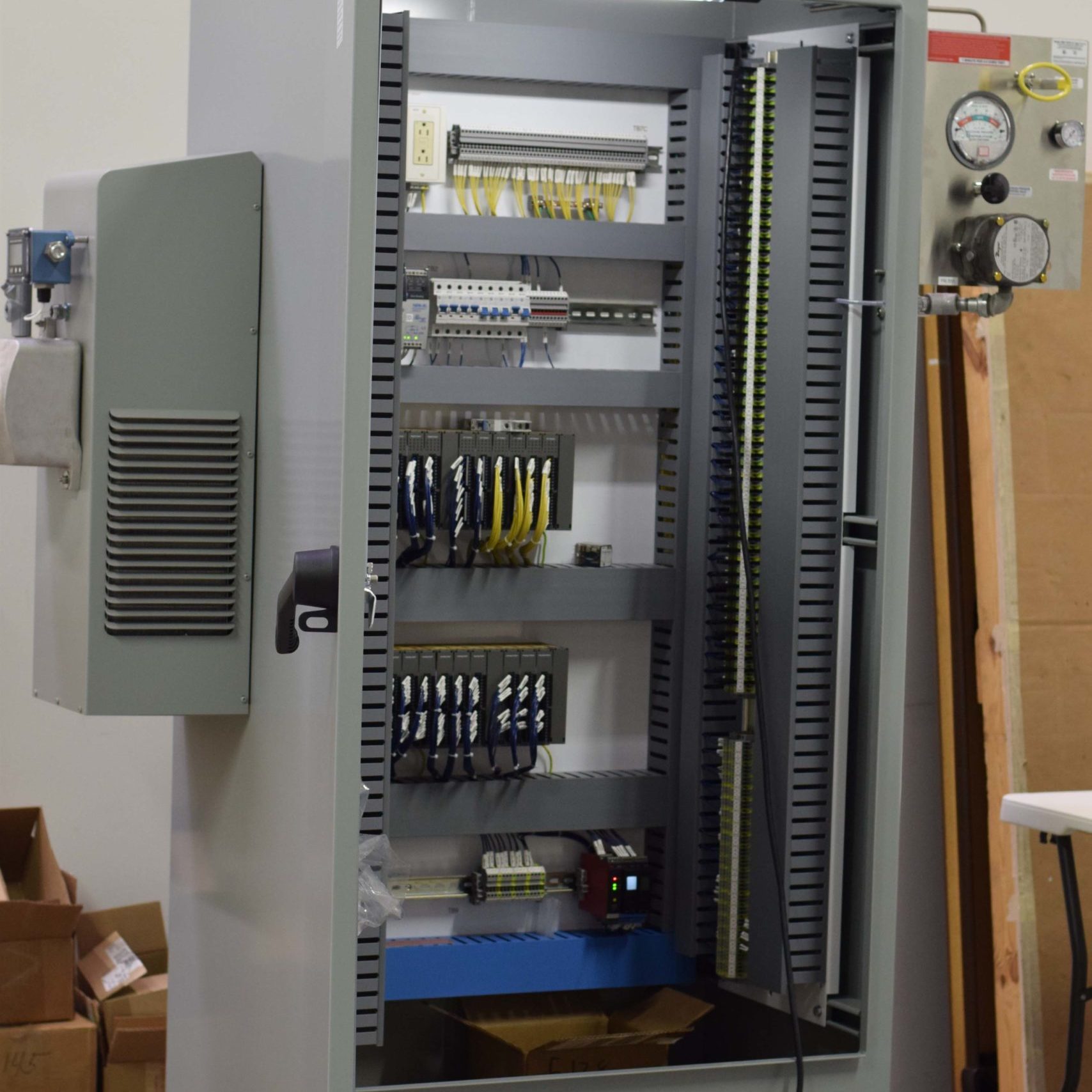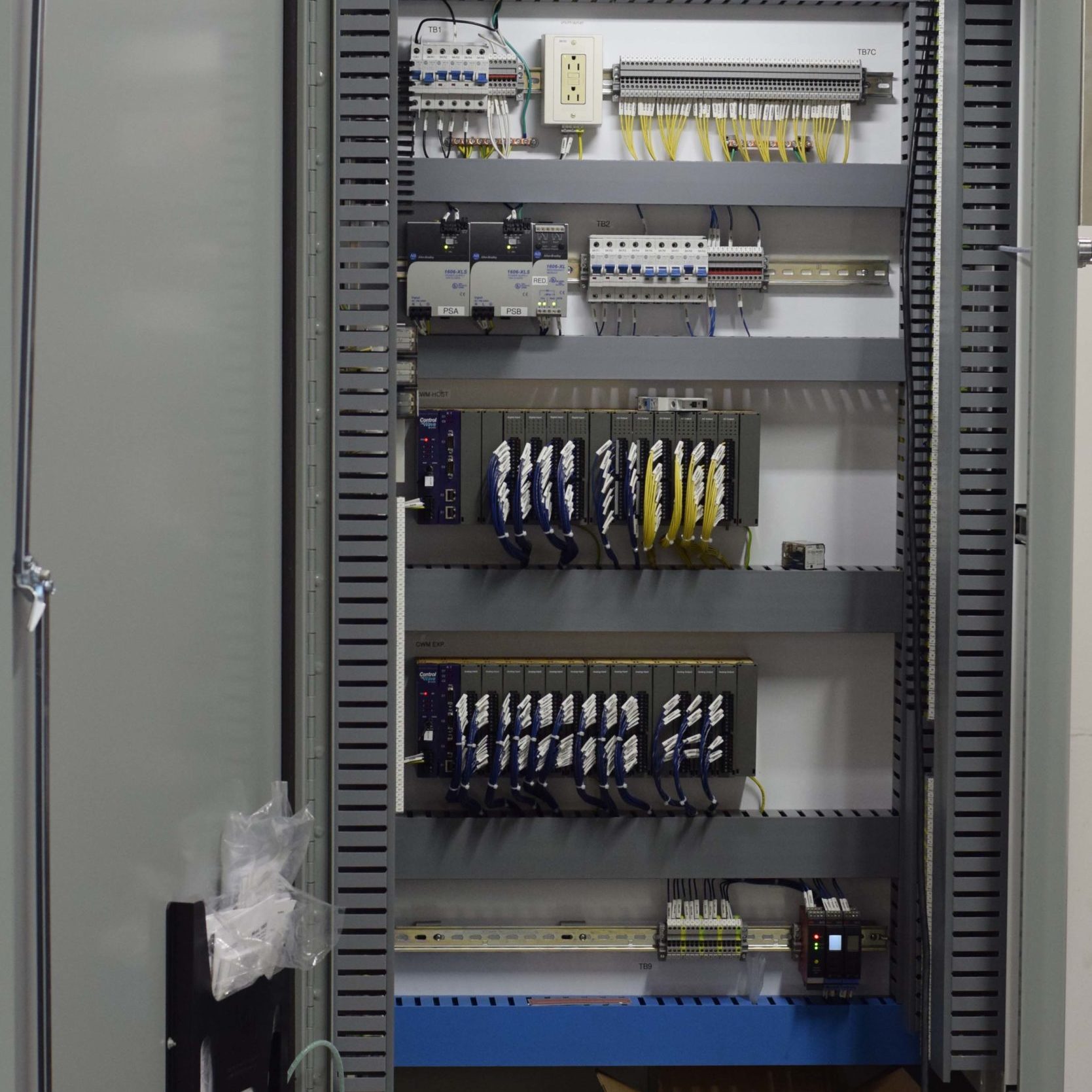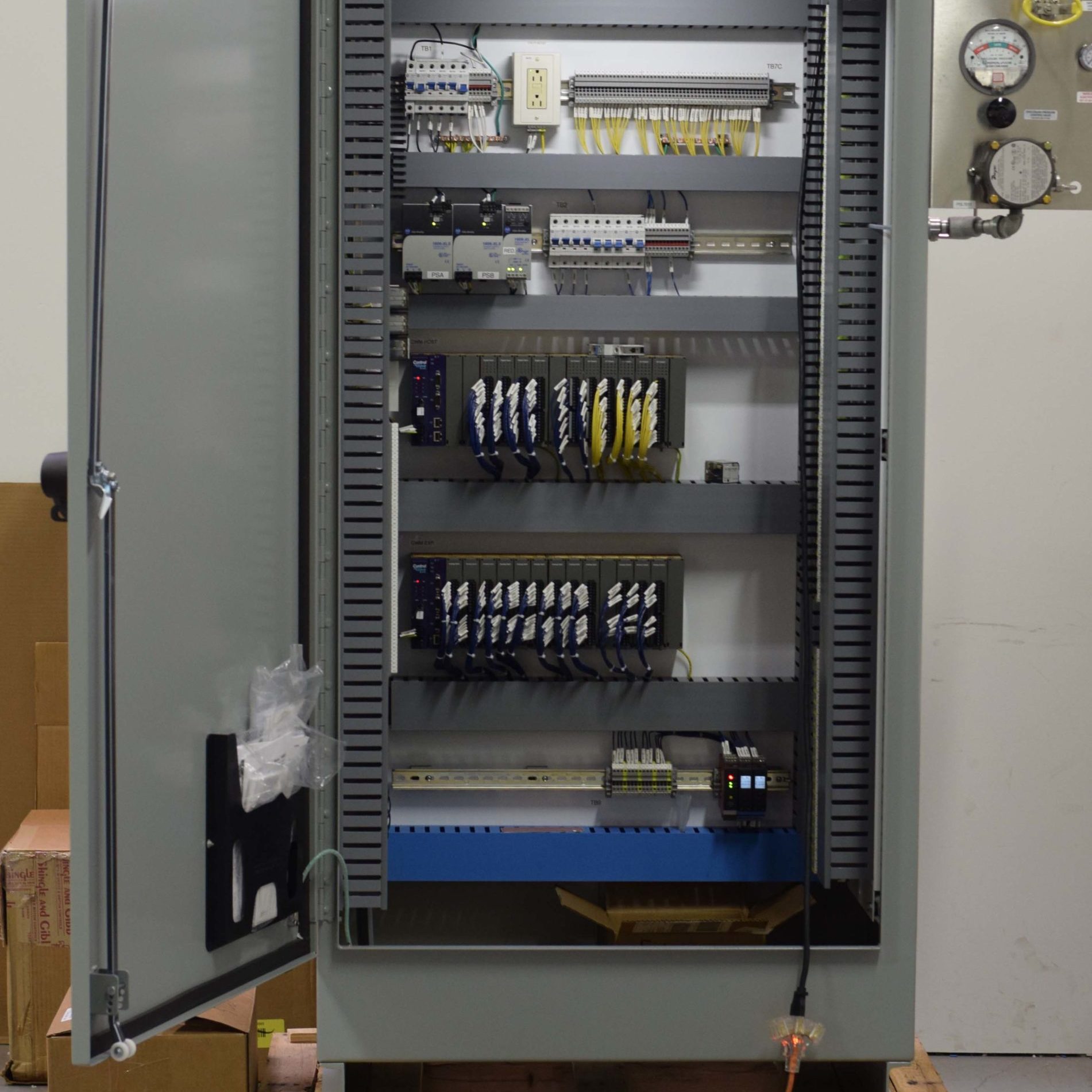DCS Panels
Panelmatic has integrated Emerson, Yokogawa, Honeywell, Invensys (Foxboro), Siemens DCS cabinets.
A distributed control system (DCS) is an industrial control system that deploys geographically distributed control loops throughout a facility or control area. Its main aim in any facility is to control industrial processes in a way that improves safety, reliability, and cost effectiveness. It differs from a centralized control system, where a single controller in a central location is responsible for the control function.
In a DCS, there is a dedicated controller for each machine or process element. Thus, it localizes the control functions while providing remote monitoring and supervision. Another advantage of the DCS is that by dividing control tasks, the plant continues operation regardless of failure in any section. The distribution of computing power helps ramp up the speed of processing by eliminating network delays that are common with central processing.
There are several elements that make up a DCS.
- Engineering Workstation: This is the supervisory controller for the entire DCS. Usually it is a PC, but could be any type of computer that has a dedicated software for the control system. In any case, this workstation should enable users to perform a host of engineering functions such as creating input and output points, establishing new loops, configuring distributed devices, modifying sequential and continuous control logic, etc.
- Operation Station or Human Machine Interface (HMI): This serves to monitor, operate, and control the plant parameters. Similar to the engineering workstation, it is usually a PC, but, could be any type of monitoring device that enables an operator to view the values of process parameters, and take necessary actions. An HMI could be a single station, or multiple stations depending on the size of the DCS and functionalities available. For example, functions such as data logging, data acquisition, trend archiving, and parameter display can each have stations of their own.
- Communication System: The communication system is important to the DCS as it connects all aspects of the system. There are several protocols that are used including Ethernet, DeviceNet, and Modbus. Moreover, it is common to find a combination of protocols where some levels use one network, while others use a different network that suits its communication.
- DCS Process Control Unit: This goes by several names including process station, distribution controller, and local control unit. A DCS can have one or more of these process stations, which can be extended as the facility expands. Typically, this unit consists of a CPU module, communication module, and I/O modules that are connected to field devices directly or remotely. When field devices such as sensors and actuators connect directly to the communication module without passing through the I/O module, they are referred to as smart devices.
Smart or Intelligent Devices: These are gradually replacing the traditional devices that utilize I/O modules in most DCS. Because they have the inherent ability to perform sensing and control functions, they eliminate the need for I/O modules in the process control unit.

